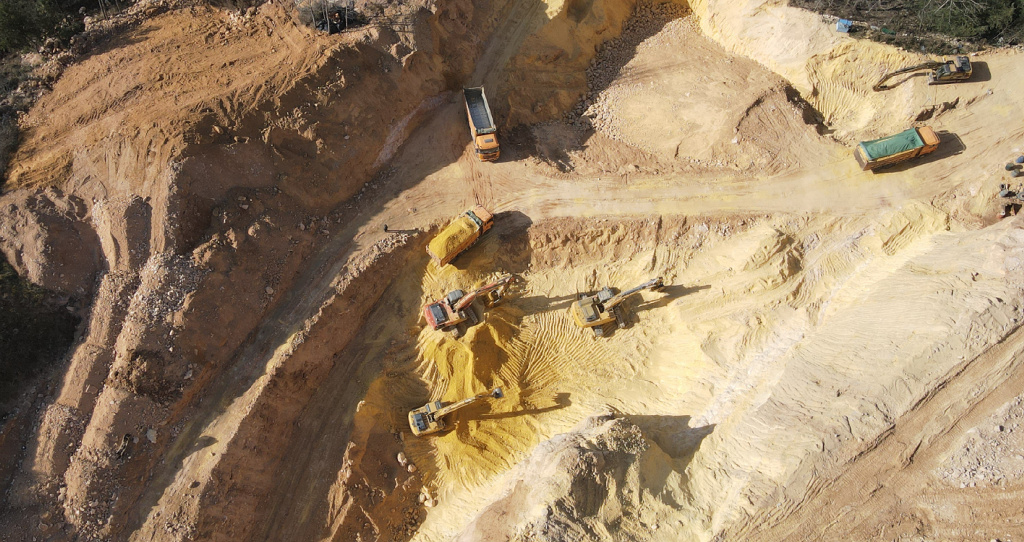Nonferrous Metals
The role of non-ferrous metals in industrial economy
The importance of supply chain finance for the non-ferrous metal industry

2. Overview of the non-ferrous metal product industry
Definition and classification of non-ferrous metals
copper
aluminium
lead
zinc
nickel
tin
titanium
The development history of the industry
Analysis of current market conditions
3. Characteristics of non-ferrous metal supply chain
Global supply chain network
Price fluctuations and market sensitivity
Special requirements for logistics and warehousing
Environmental and Sustainability Challenges

4. Challenges in the non-ferrous metal industry
International market price fluctuations
Uneven geographical distribution of mineral resources
Environmental regulations and sustainability requirements
Technical innovation and product upgrade requirements
5. Supply chain finance solutions
The basic concepts of supply chain finance
How supply chain finance supports the non-ferrous metal industry
Enhanced liquidity of funds
risk management
Cost benefit analysis
Introduction to Supply Chain Finance Products
account receivable financing
Inventory financing
Advance payment financing
credit insurance
6. Analysis of successful cases in the non-ferrous metal industry
Successful Cases of Nonferrous Metals Industry at Home and Abroad
Application and effectiveness of supply chain finance in case studies
26 Mineral Resources. jpg
7. Advantages of supply chain finance platforms in the non-ferrous metal product sector
The services and functions provided by the platform
User experience and operational convenience
Security and transparency
Technical support and data analysis capabilities
8. Risk management and compliance
Risk assessment and management strategy
The importance of compliance
Compliance with laws and regulations
9. Future development trends of the non-ferrous metal product sector
The impact of technological innovation on the industry
Sustainability and environmental trends
Global market integration trend
10. Conclusion
Vision of supply chain finance platform for non-ferrous metal product sector
Outlook for the non-ferrous metal industry
Key point analysis
The importance of non-ferrous metals
Non ferrous metals are essential foundational materials in modern industry, widely used in various fields such as construction, transportation, and electronics.
The characteristics of the non-ferrous metal supply chain
Globalization: The supply chain network of non-ferrous metals is spread throughout the world, involving multiple links such as mineral mining, smelting, and processing.
Price fluctuations: The prices of non-ferrous metals are influenced by factors such as the global economy, monetary policy, and supply-demand relationships, resulting in significant fluctuations.

Challenges in the non-ferrous metal industry
Resource distribution: Uneven distribution of non-ferrous metal mineral resources leads to instability in the supply chain.
Environmental regulations: Mining and smelting processes may have an impact on the environment and strict environmental regulations need to be followed.
Supply chain finance solutions
Liquidity of funds: Non ferrous metal enterprises usually require a large amount of capital to invest in production and technological research and development, and supply chain finance can provide necessary financial support.
Risk management: Supply chain finance can help businesses hedge against price volatility risks and optimize inventory management.
Advantages of supply chain finance platforms in the non-ferrous metal sector
Service function: The platform provides customized supply chain financial products to meet the specific needs of different non-ferrous metal enterprises.
User experience: The platform design takes into account the convenience of user operation and provides a simple and intuitive interface.
Security: The platform adopts advanced technology to ensure the security of transactions.
Risk management and compliance
Risk assessment: The platform needs to assess and manage unique risks in the non-ferrous metal industry.
Compliance: The platform must comply with relevant laws and regulations in the non-ferrous metal industry.
The future development trend of non-ferrous metal sector
Technological innovation: New technologies such as circular economy and green smelting will promote sustainable development in the industry.
Sustainability: Environmental protection and sustainability will become important development directions for the non-ferrous metal industry.
